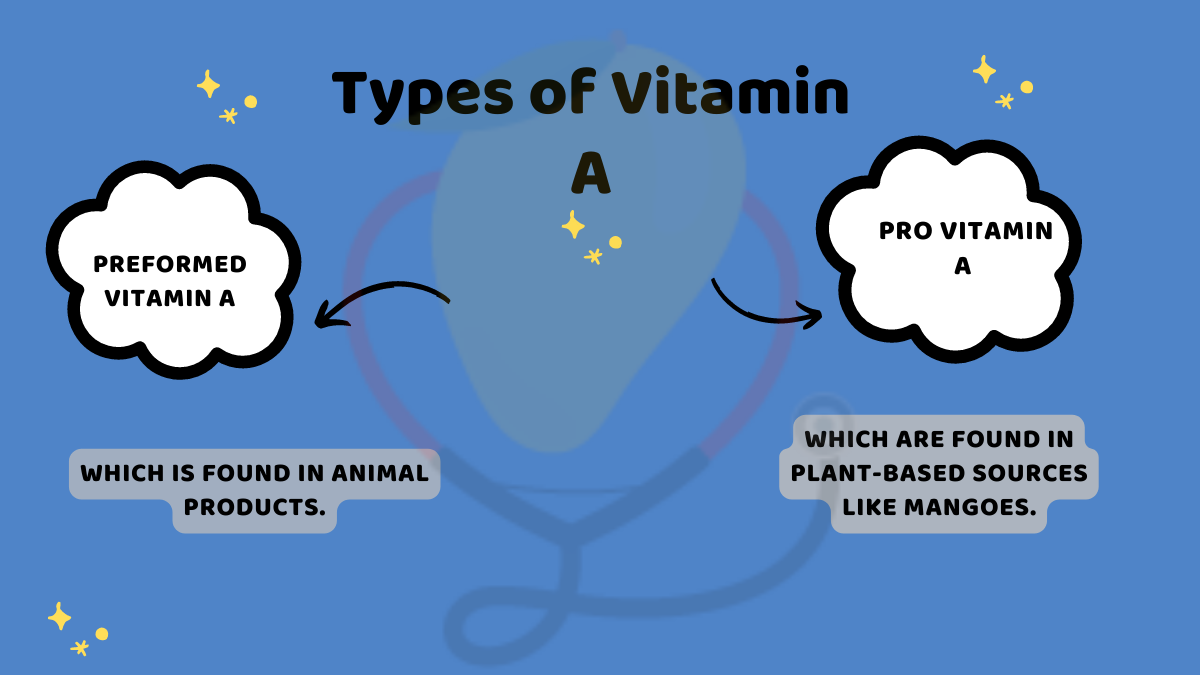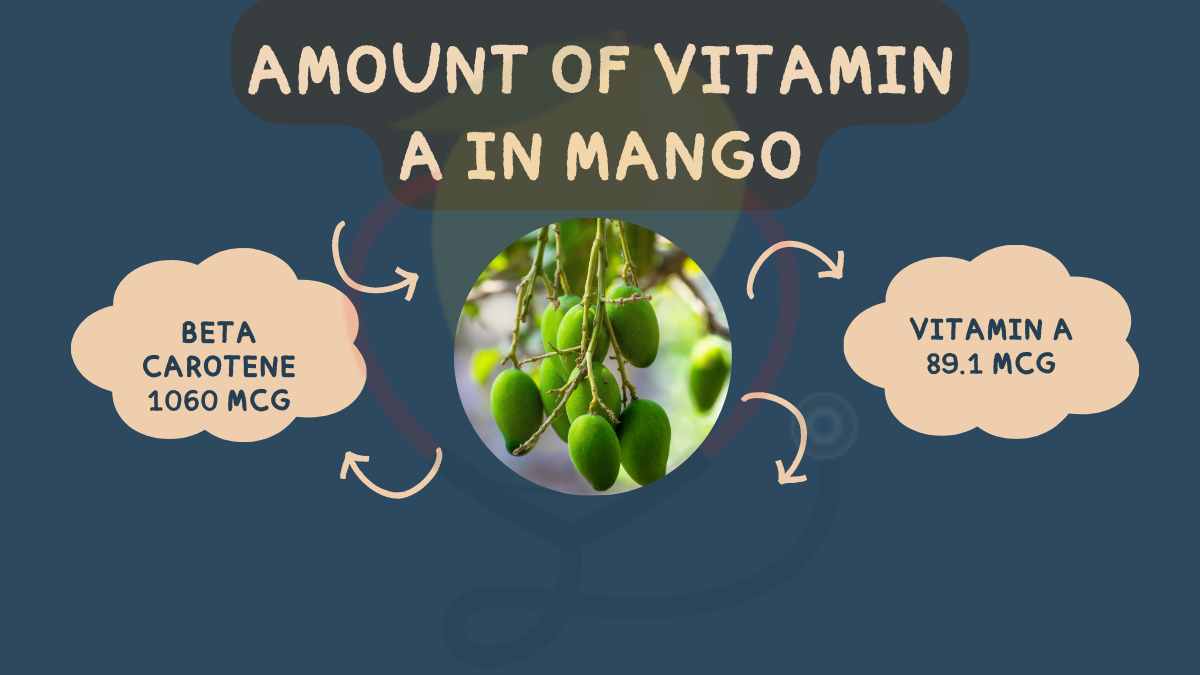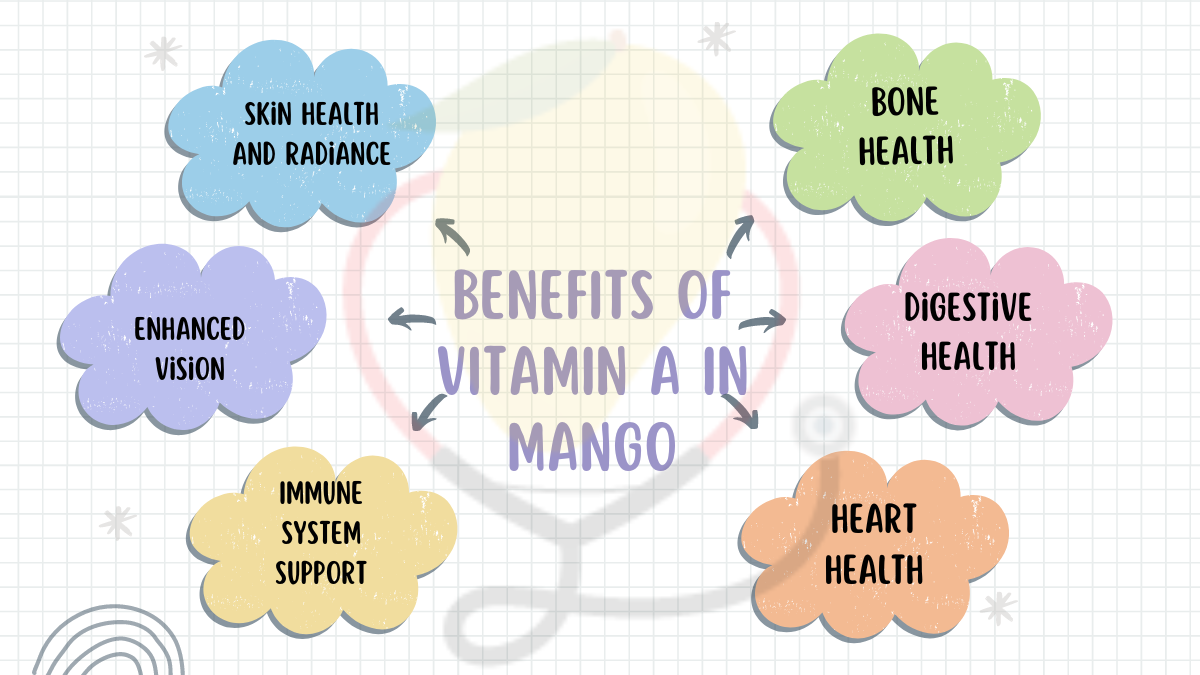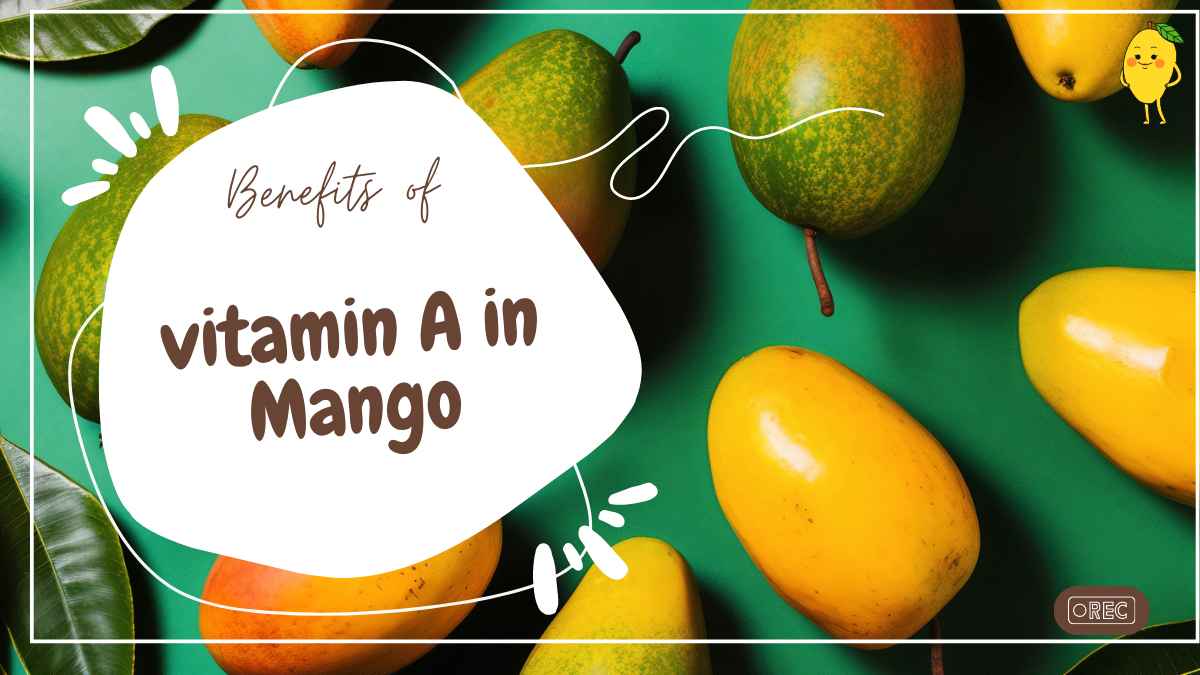Vitamin A is a fat-soluble vitamin essential for maintaining healthy vision, immune function, and cellular communication. [1]
Vitamin A in mango are very beneficial for human health.
There are two types of Vitamin A, preformed Vitamin A, which is found in animal products and pro vitamin A carotenoids, which are found in plant-based sources like mangoes.

Mangoes are not only a delightful tropical fruit but also a fantastic source of essential nutrients, including the powerful antioxidant, Vitamin A.
In this article, we’ll dive into the wonderful benefits of Vitamin A in mango brings to your well-being.
Amount of Vitamin A in Mango
Mangoes are a good source of Vitamin A, specifically in the form of beta-carotene, which is a type of provitamin A.
The amount of vitamin A in mango is 89.1 micrograms (mcg) beta carotene: 1,060 mcg.

Benefits of Vitamin A in Mango

1: Skin Health and Radiance
Vitamin A plays a vital role in maintaining healthy skin by promoting cell turnover and repair. [2]
Regular consumption of mangoes can contribute to a youthful complexion and a radiant glow.
2: Enhanced Vision
Vitamin A is crucial for good vision, especially in low-light conditions. [3]
It helps form a pigment called rhodopsin in the eyes, enhancing night vision and reducing the risk of age-related macular degeneration.
3: Immune System Support
A robust immune system is essential for overall health. [4]
Vitamin A helps maintain the integrity of the skin and mucous membranes, acting as a barrier against pathogens and supporting immune cell function.
4: Bone Health
Vitamin A contributes to bone health by promoting the activity of osteoblasts, the cells responsible for bone formation. [5]
It also aids in calcium absorption, crucial for maintaining strong and healthy bones.
5: Anti-Inflammatory Properties
Mangoes contain antioxidants and anti-inflammatory [6] compounds, including Vitamin A, which can help alleviate inflammation and may benefit conditions like arthritis.
6: Digestive Health
Rich in dietary fiber and enzymes like amylases, mangoes support digestive health. [7]
Vitamin A contributes to the maintenance of mucosal lining in the gut, promoting a healthy digestive tract.
7: Heart Health
Vitamin A, along with other antioxidants in mangoes, helps reduce oxidative stress and inflammation, contributing to cardiovascular health [8] and potentially lowering the risk of heart disease.
8: Cancer Prevention
The antioxidant properties of Vitamin A in mangoes may help protect cells from damage and reduce the risk of certain types of cancer, [9] such as lung and oral cancers.
9: Aid for Pregnancy
During pregnancy, Vitamin A is crucial for fetal development, particularly for the formation of the heart, lungs, and kidneys.
Mangoes can provide a tasty way to support these vital processes.
10: Healthy Hair
Vitamin A aids in the production of sebum, a natural oil that keeps the scalp and hair moisturized. [10]
Consuming mangoes can contribute to lustrous and healthy-looking hair.
11: Boosted Brain Function
Vitamin A is involved in maintaining the health of nerve cells and supporting cognitive function. [11]
Regular intake of mangoes could contribute to better brain health.
Incorporating mangoes into your diet is a delicious way to harness the benefits of Vitamin A.
From skin health and vision enhancement to immune support and cancer prevention, the juicy goodness of mangoes offers a wide range of advantages for your overall well-being.
Frequently Asked Questions
What is the daily recommended intake of Vitamin A?
The recommended daily intake of Vitamin A varies by age and gender, but for most adults, it’s around 700-900 micrograms of retinol activity equivalents (RAE).
Can I consume mangoes if I have diabetes?
While mangoes do contain natural sugars, they can be enjoyed in moderation by individuals with diabetes as part of a balanced diet. Monitoring portion sizes is key.
Are there any side effects of excessive Vitamin A consumption from mangoes?
Yes, consuming too much Vitamin A, especially in supplement form, can lead to toxicity. However, it’s unlikely to result from eating mangoes alone.
How can I incorporate more mangoes into my diet?
You can enjoy mangoes fresh, in smoothies, salads, salsas, or even grilled for a unique twist. Be creative and savor the tropical goodness!
Are there any other fruits rich in Vitamin A besides mangoes?
Yes, other fruits like cantaloupe, apricots, and papaya also contain Vitamin A and can be a tasty addition to your diet.

